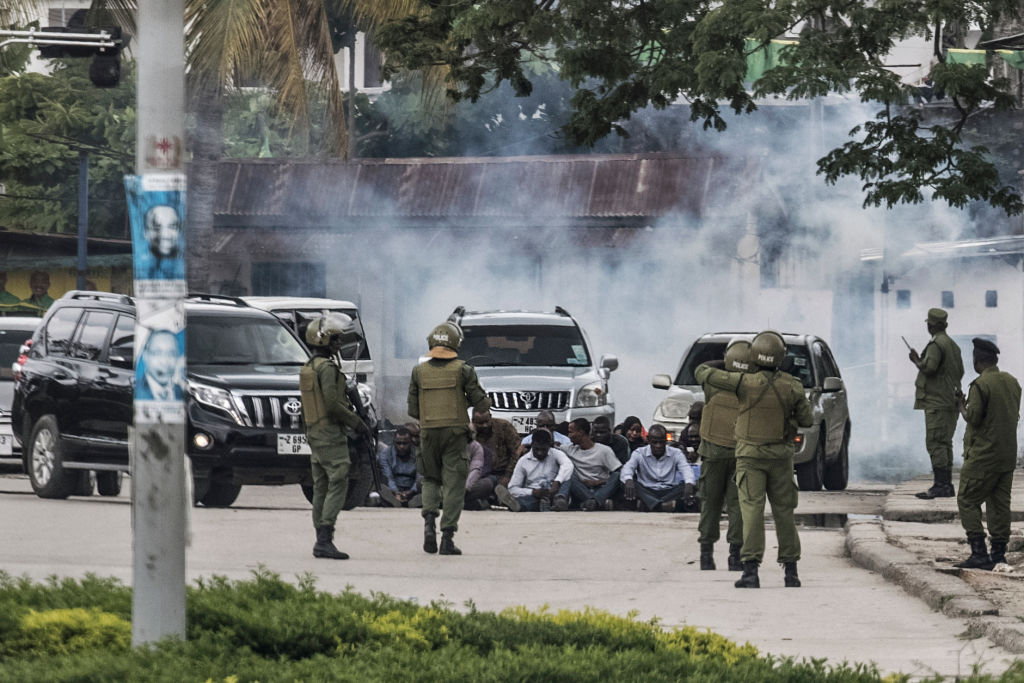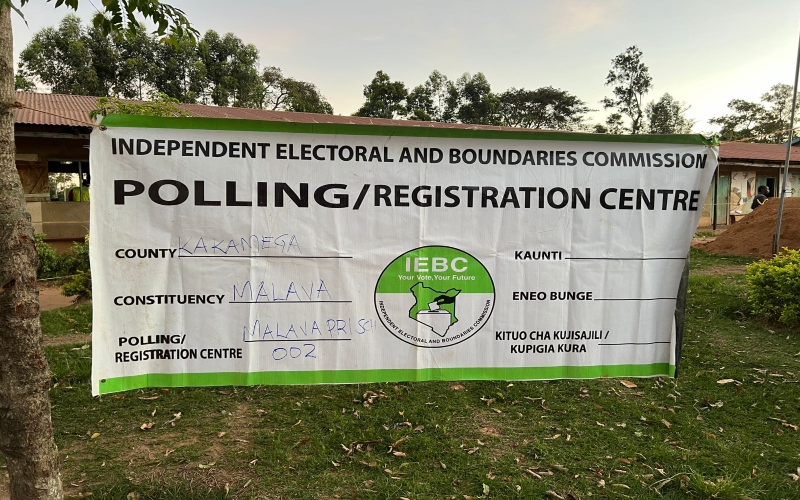East Africa Law Society demands immediate restoration of internet, lifting of curfew in Tanzania

The society expressed concern over reports of fatalities, injuries and mass arrests following the October 29 General Election, noting that the actions undermine public trust in democratic institutions.
The East Africa Law Society (EALS) has called for the immediate restoration of internet access and the lifting of curfew in Tanzania, warning that continued restrictions and the use of excessive force against protesters risk deepening political unrest.
In a statement, the society expressed concern over reports of fatalities, injuries and mass arrests following the October 29 General Election, noting that the actions undermine public trust in democratic institutions.
More To Read
- Tanzanian authorities orders petrol stations to limit fuel sales to boda bodas, tuk-tuks ahead of planned December 9 protest
- Tanzania opposition leader Lissu accuses President Samia of ignoring electoral reforms, fuelling violence amid political crisis
- US Senate Committee on Foreign Relations calls for probe into Tanzania election violence
- Tanzania President Samia launches inquiry into alleged paid participation in election unrest
- Two Kenyans still held in Tanzania, one confirmed death after election unrest - Mudavadi
- CHADEMA rejects President Samia’s inquiry into Tanzania election unrest, demands international probe
The violent confrontations have marred several regions in Tanzania, including Dar es Salaam, Arusha, Songwe, Mbeya and other areas, leaving multiple people dead and many more injured.
Authorities’ imposition of nationwide curfews, internet shutdowns, school closures, and widespread arrests has also intensified public anxiety and further eroded confidence in Tanzania’s constitutional structures.
“As the regional bar association mandated to promote the rule of law, good governance and human rights, the EALS views these developments as symptomatic of a broader democratic regression in East Africa,” read the statement.
EALS specifically condemned the disqualification of opposition candidates, including Tundu Lissu of CHADEMA and Luhaga Mpina of ACT-Wazalendo, alongside reports of arbitrary arrests, enforced disappearances and intimidation of dissenting voices.
“What should have been an exercise in the peaceful transfer of authority has instead become a reminder of the fragility of the social contract when the institutions of accountability are compromised,” it added.
The society stressed that elections are not merely procedural rituals but the constitutional mechanism through which the sovereign will of the people is expressed.
“Their legitimacy rests not only on the act of voting, but on the integrity of the process, transparency, inclusivity, fairness, and respect for fundamental rights. Where these elements are absent, electoral processes degenerate into formalities devoid of meaning, eroding both state legitimacy and public trust,” EALS noted.
EALS recalled that Tanzania, as a founding member of the East African Community (EAC), is bound by Article 6 of the EAC Treaty, which enshrines democracy, the rule of law, and accountability. The Protocol on Democracy and Good Governance (2011) further obliges member states to conduct “periodic, free and fair elections” through independent electoral bodies, open civic space, and equal political participation—principles EALS says have been undermined in this election cycle.
On the international level, the society warned that the use of coercion and lethal force against protesters violates Article 25 of the International Covenant on Civil and Political Rights (ICCPR) and the UN Basic Principles on the Use of Force and Firearms by Law Enforcement Officials (1990).
EALS also cited the African Charter on Democracy, Elections and Governance (2007), ratified by Tanzania, which prohibits acts of intimidation and demands the protection of electoral independence. The ongoing internet blackout, it said, contravenes the International Bar Association’s Guidelines on Freedom of Expression and the Media (2010), undermining transparency and civic participation.
“These cumulative violations signal a retreat from the normative commitments that underpin both Tanzania’s Constitution and its regional and international obligations,” the society said.
EALS called on all actors to exercise restraint and uphold the law, stressing that security agencies must protect life and property with proportionality and professionalism. The organisation warned that the indiscriminate use of live ammunition or excessive force against unarmed citizens not only breaches domestic and international law but also deepens existing societal divisions.
Addressing citizens, EALS highlighted that the right to protest is sacrosanct but must be exercised peacefully and within legal bounds.
“The moral force of nonviolent resistance has historically been the bedrock of democratic renewal in Africa,” read the statement.
The organisation also urged the Tanzanian government to immediately restore internet access, lift curfews where feasible, and establish an independent, transparent audit of the electoral process under the supervision of the East African Community.
EALS further called for the release of all individuals arbitrarily detained, including opposition leaders, journalists and human rights defenders, noting that such steps would advance national healing and strengthen institutional credibility.
The society also called for collective regional action. EALS urged the EAC Secretariat to invoke its good offices under Article 147 of the Treaty to initiate fact-finding and mediation. It additionally called upon the African Union and the United Nations to deploy independent observers to investigate human rights violations and excessive use of force.
“EALS stands ready to work with the Tanganyika Law Society, civil society organisations, and regional institutions to pursue appropriate legal and diplomatic remedies, including proceedings before the East African Court of Justice,” the society said.
The society emphasised Tanzania’s historical role as a “moral anchor of Pan-Africanism, a sanctuary for liberation movements, and a custodian of regional solidarity,” warning that erosion of the rule of law in one country endangers the stability of the region.
“The rule of law is not an abstract ideal; it is the living architecture of peace, justice, and sustainable development. Its erosion anywhere in East Africa imperils all of us.”
Top Stories Today















































